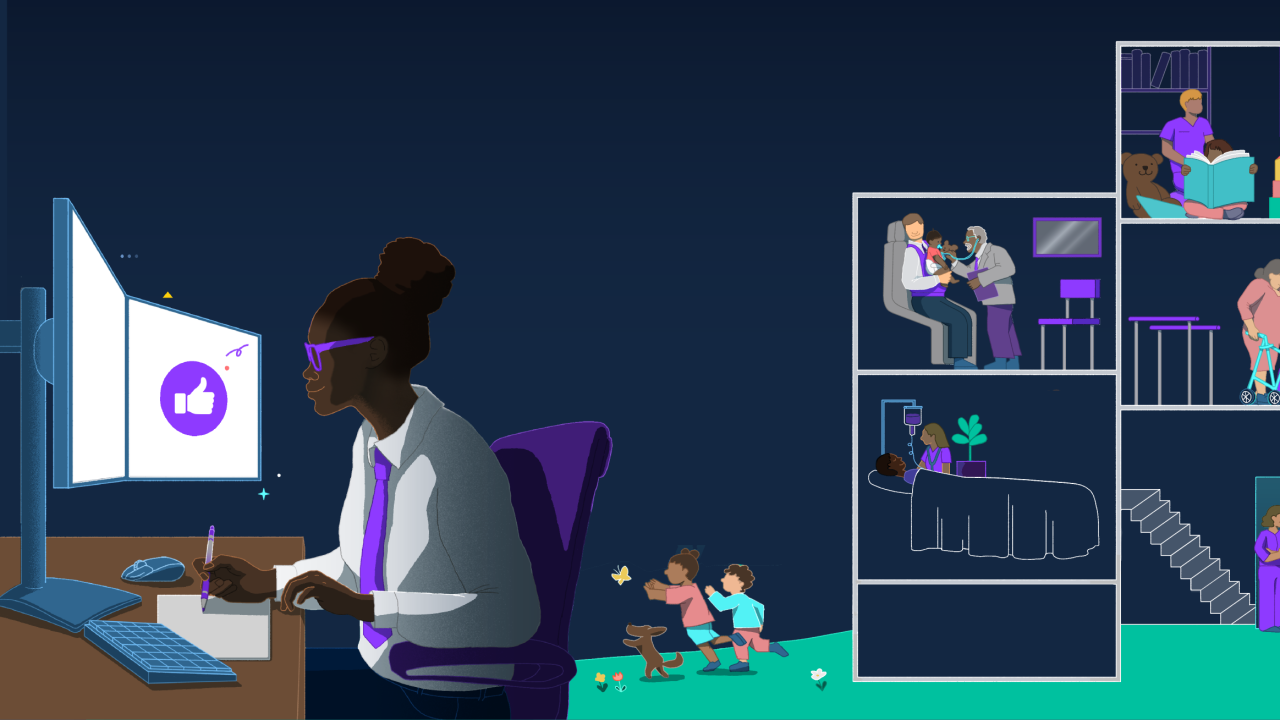Autoimmune diseases can be difficult to identify and manage, leading to
The Cleveland Clinic defines autoimmune diseases as health conditions that occur when a person's immune system attacks the body instead of defending it. There are more than a hundred autoimmune diseases, with a broad array of symptoms ranging from mild to severe, and women are more likely to have them then men. Some of the more well known include multiple sclerosis (MS), lupus, rheumatoid arthritis, Type 1 diabetes and inflammatory bowel disease.
Currently there are no cures; even when diagnosed and treated, those with these
Read more:
After experiencing debilitating symptoms that were dismissed by many specialists before finally being identified as autoimmune-related, Ellen Rudolph founded WellTheory, a care platform that serves as a resource for those dealing with unidentified symptoms as well as autoimmune diagnoses. It's also a great resource for employers to better understand how to support employees who have them, from accommodations to insurance needs.
"I was 25 and climbing a corporate tech ladder, living in New York in what should have been in the prime of my health and my career, when I started to navigate this chronic health mystery that left me totally bedridden," Rudolph says. "We are expensive as a patient population — autoimmune is a top-five cost driver. But it's really flown under the radar, in part because these are invisible conditions, but also in the claims data."
The impact on employers
For employers, autoimmune disease-related healthcare costs can be up to six times those of employees without them, and short- and long-term disability claims can run in the tens of thousands per individual, according to a report from WellTheory.
At cloud-based human capital management company Dayforce, adding WellTheory's specialized support to their benefits in January has helped employees on their U.S. health plans receive more direct care.
"It's important for employers to recognize opportunities, especially where there's a disproportionate impact to a subset of your population," says Dayforce's global director of benefits, Tom Armani, whose wife has been dealing with lupus for the past 20 years. He recalls going back and forth to doctors for months before she was finally diagnosed, and, as with Rudolph's experience, doctors along the way were dismissive of her concerns and symptoms.
"What's valuable about a resource like WellTheory is you've got an avenue to go to where there is an embedded understanding of what the condition is, what the symptoms are and what is potentially driving it," he says.
Read more:
In addition to an expert care team that assists members in areas that can improve their symptoms, such as nutrition, sleep, stress management, movement and relationships, WellTheory's online community gives people experiencing autoimmune issues a safe place to connect with others. Members also have access to masterclasses, advanced testing and discounted supplements and products.
"There's tremendous value in community and in having the type of resourcing that you can direct somebody to where they're being embraced and welcomed," Armani says.
Dayforce's employees have access to a 12-month program that starts with a root-cause assessment to identify what is triggering symptoms, followed by the development of a personalized care plan. By taking part in the personalized care plans offered by WellTheory, 91% of members have experienced symptom relief in 12 weeks, 64% saw less emergency room cost and 61% reported improvements to depression and anxiety.
Adding WellTheory to their list of offerings has further rounded out the focus on specialized support, joining benefits like diabetes, caregiving, women's health and GI programs, Armani says.
Read more:
Rudolph urges benefit leaders to pull back the curtain on autoimmune disorders by prioritizing offerings, education and communication, all which lead to their employees feeling better and being more comfortable speaking up about their needs. The sooner people can get the care they need, the sooner they are able to improve their health, happiness and productivity.
"There is still a stigma in the workplace," she says. "How do you explain to your manager that you can't predict when you're going to have a flare up of your symptoms? These are invisible illnesses, where you don't need to look sick to be sick."
Read more about specialized health benefits:
4 health benefits trends for chronic conditions WellTheory's CEO shares how a chronic disease diagnosis changed her approach to healthcare Supporting workers with a chronic illness: Tips from a cancer survivor and CEO How this AI platform is improving low-cost access to cancer care Do your benefits support cancer survivors?






